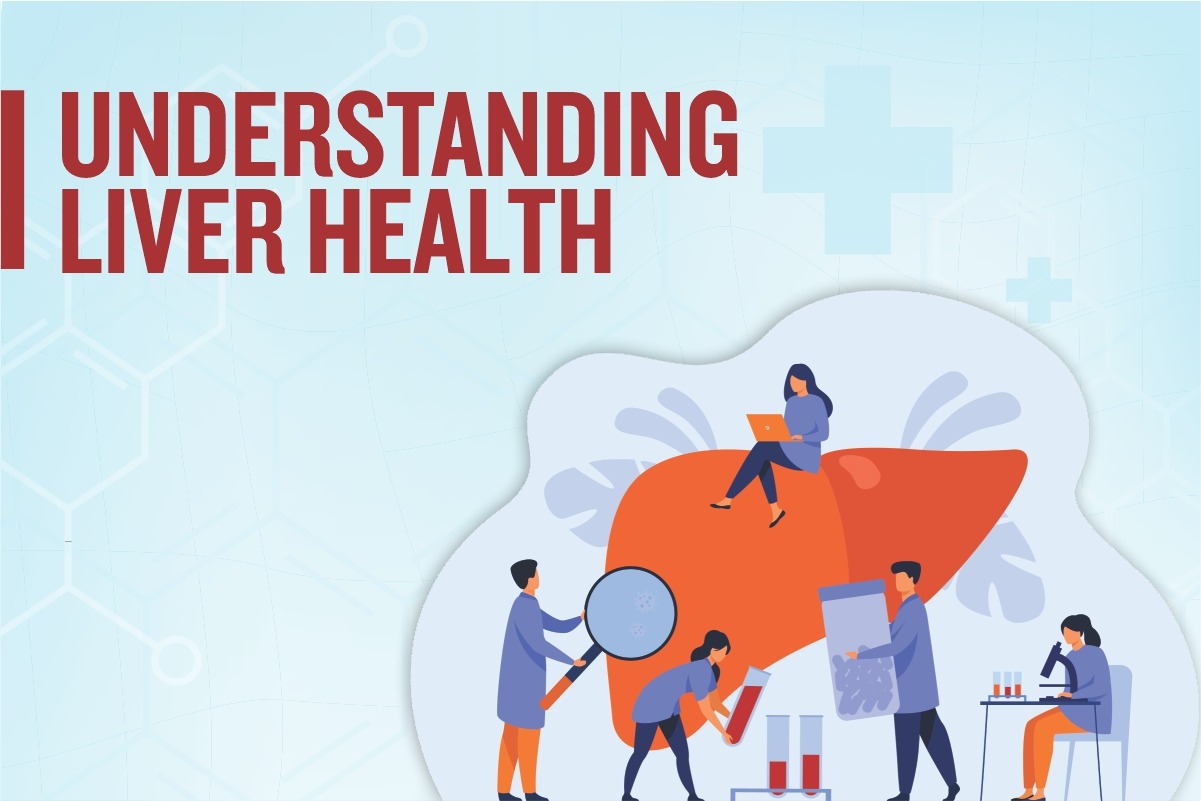Understanding IVF
Jul 25, 2024

The liver is the largest organ in the human body and is located in the upper right-hand side of the abdomen. It has a variety of functions, including filtering toxins from the blood, producing bile to aid in digestion, and regulating hormones & glucose levels. Liver is also responsible for breaking down fats, proteins, and carbohydrates, which are essential for energy production.
Therefore, it is essential to maintain a healthy liver to ensure overall well-being. However, many people are unaware of the signs indicative of liver disease and when they should seek medical attention. Let’s discuss the importance of liver health, the common causes of liver disease, and when to go for treatment.
The most common causes of liver disease include viral infections, such as Hepatitis B and C, alcohol abuse, and obesity. These conditions can cause inflammation and scarring of the liver, known as cirrhosis. Other causes of liver disease include genetic conditions, such as Haemochromatosis and Wilson’s disease, and autoimmune disorders, such as primary Biliary Cholangitis.
Symptoms of liver disease can vary depending on the stage and severity of the condition. Early stages of liver disease often do not have any symptoms, making it essential to have regular check-ups. However, as the disease progresses, some common symptoms include Jaundice (yellowing of the eyes & skin), fatigue, abdominal pain, and weight loss. In advanced stages of liver disease, symptoms such as ascites (fluid accumulation in the abdomen), easy bruising, and confusion can occur.
It is important to consult the medical expert if you experience the above symptoms or if you have a risk factor for liver diseases, such as a history of alcohol abuse or viral hepatitis. Your doctor will perform a physical examination, take a medical history, and conduct blood tests to check for elevated liver enzymes, which can indicate liver damage. Imaging tests, such as Ultrasound or CT scan, may also be performed to assess the liver’s condition.
Treatment for liver disease depends on the underlying cause and the stage of the condition. In the early stages of liver disease, lifestyle changes, such as diet and exercise, can be beneficial in slowing down the progression of the disease. If a viral infection is the cause of the disease, antiviral medications can be prescribed to help clear the virus.
For alcohol-related liver disease, the first step is to stop drinking alcohol. This can halt further damage to the liver and allow it to heal. Additionally, a low-fat diet and exercise can also help in managing the condition.
In advanced stages of liver disease, such as cirrhosis, treatment options become more limited. If the liver is significantly damaged, a liver transplant may be the only option to prolong the patient’s life. However, this is a complex and invasive procedure and not always a feasible option. Other treatments, such as shunting procedures and liver-assist devices, may also be considered, but their effectiveness is still being studied.
Another treatment option for liver disease, especially for those with Viral Hepatitis, is Interferon Therapy. It can help to clear the virus from the body and, in some cases, even reverse liver damage.
It’s also important to take care of underlying conditions that may be contributing to liver diseases, such as obesity or diabetes. These conditions should be managed under the care of a doctor to prevent further damage to the liver.
In conclusion, liver health is crucial for overall well-being, and it is important to be aware of the common causes and symptoms of liver disease. If you have any symptoms of liver disease, it is important to seek medical attention without any delay.
With early diagnosis and treatment, it is possible to slow or even reverse the progression of the liver disease. It is also essential and beneficial for everyone to make lifestyle changes, such as maintaining a healthy diet, regular exercise, and avoiding alcohol to help keep your liver healthy.
Director – Liver Transplant and GI Surgery